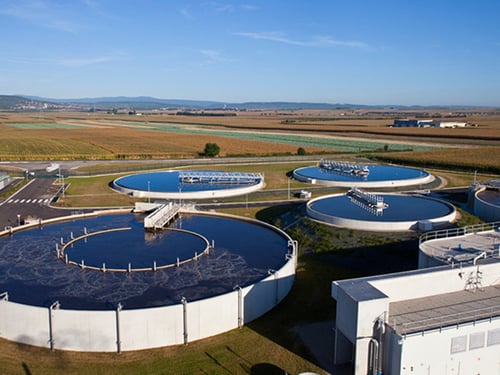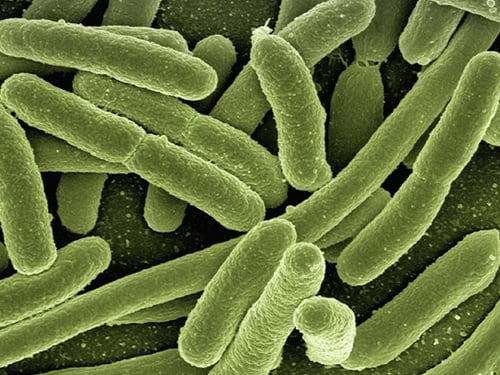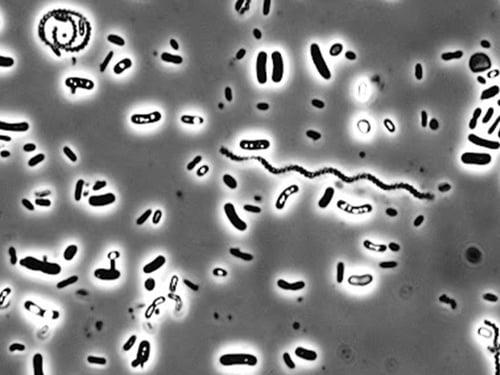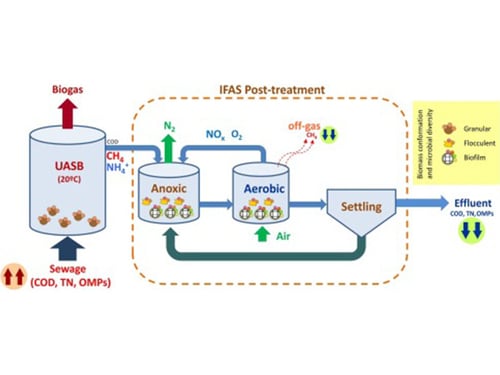In the modern era, wastewater treatment is not only about reducing pollution, but also emphasizing environmental sustainability. One of the keys to success in a sustainable wastewater treatment system is the role of bacteria. These microorganisms play a vital role in breaking down various pollutants, making bacteria the silent heroes of the environment. With their unique ability to process and convert waste into components that are safer for the environment, bacteria play an important role in closing the waste cycle naturally. The use of microorganisms in sewage treatment is not only effective in purifying water, but also supports a greener and more sustainable approach to sewage treatment, reducing the need for harmful chemicals and utilizing natural processes to achieve the desired results.
This article will take an in-depth look at how bacteria play a crucial role in maintaining the sustainability of wastewater treatment systems. We will explore the mechanisms by which bacteria break down pollutants, their role in environmental cycles, and how current technology can improve the effectiveness of bacteria in sewage treatment. By understanding more about the vital contribution of bacteria, we can appreciate and improve efforts towards effluent treatment practices that are not only effective but also environmentally friendly.

Introducing Liquid Waste Treatment System
Liquid effluent treatment is an important process that aims to reduce pollutants in wastewater before it is released into the environment. This process protects ecosystems and human health from the negative impacts of water pollution. In a sustainable context, wastewater treatment not only focuses on the reduction of pollutants, but also on the efficient use of resources and the recovery of resources from waste, such as water for irrigation or energy from biomass.
Bacteria play a major role in this process. They work naturally to break down organic matter and other pollutants, making the treatment process more sustainable and environmentally friendly. This approach supports the principles of the circular economy, where waste is considered a resource that can be reused.

Vital Role of Bacteria in Liquid Waste Treatment
Bacteria are biological agents that have a remarkable ability to break down various types of pollutants. In liquid waste treatment systems, bacteria act as decomposers that convert organic matter and harmful pollutants into more stable and less harmful substances. This process is known as biological treatment, which is one of the key stages in many sewage treatment systems.
There are different types of bacteria involved in this process, including aerobic bacteria that require oxygen to survive and anaerobic bacteria that can live without oxygen. Both types of bacteria play important roles in different stages of sewage treatment, with aerobics generally responsible for the decomposition of organic matter and anaerobics playing a role in the fermentation process that produces methane gas, a renewable energy source.
In the context of sewage treatment, bacteria can play an important role in the process.
In the context of sewage treatment, nitrifying bacteria play a crucial role in converting ammonia into nitrites and nitrates, an important process for removing nitrogen from wastewater. The denitrification process, carried out by denitrifying bacteria, then reduces nitrate to nitrogen gas, removing excess nitrogen from the water. This process not only reduces nitrogen pollution that can be harmful to aquatic ecosystems but also helps in controlling eutrophication, a phenomenon that causes excessive growth of algae in waters.
The success of wastewater treatment is highly significant.
The success of wastewater treatment depends largely on the balance and cooperation between these different types of microorganisms. They not only reduce pollutants, but also aid in the production of valuable resources, such as biogas, which can be used as an alternative energy source. Furthermore, phosphorus-removing bacteria are active in removing excess phosphorus from wastewater, a vital process to prevent pollution of water sources and enrich the quality of water discharged into the environment.
Through a deep understanding of the working mechanisms of these bacteria and the application of technologies that facilitate their biological processes, sustainable wastewater treatment systems can be designed to not only meet stringent water quality standards but also to support sustainable development and environmental protection.

Challenges and Solutions in Optimizing the Role of Bacteria
While the use of bacteria in wastewater treatment offers many advantages, there are several challenges that need to be overcome. One of the main challenges is the variability of operational conditions that can affect the efficiency of bacteria. Changes in temperature, pH, and oxygen concentration can disrupt bacterial activity, reducing the effectiveness of effluent treatment. Novel contaminants and micropollutants, such as residual pharmaceuticals and industrial chemicals, add complexity to sewage treatment, requiring further innovation and adaptation of treatment techniques to address them.
Solutions to address these challenges include the following
Solutions to address these challenges include the development of bacterial strains that are more resistant to extreme conditions and the use of advanced process control technologies to monitor and adjust operational conditions in real-time. This adaptive approach allows for more flexible and effective management of sewage treatment systems, ensuring the sustainability of the treatment process. In addition, the integration of advanced treatment systems, such as ozonation and adsorption using activated carbon, can be combined with biological processes to address pollutants that are difficult for bacteria to break down. Collaboration between researchers, industry and regulators is important to develop new standards and innovative approaches that support these efforts, ensuring that sewage treatment technologies continue to adapt to new challenges and meet the needs of the environment and society.

Technological Innovations in Support of Bacterial Efficiency
Recent technological developments have made it possible to increase the efficiency of bacteria in wastewater treatment. Technologies such as membrane bioreactors (MBR) and anaerobic advanced treatment provide an optimal environment for bacteria to break down pollutants. These technologies not only improve the quality of water produced but also the efficiency of resource use.
One example of a successful application is the use of high-temperature anaerobic reactors, which accelerate the decomposition of organic matter with the help of anaerobic bacteria. This not only speeds up the treatment process but also increases the production of biogas, which can be used to generate electricity or as fuel. In addition, innovations in genetic engineering and biotechnology have enabled the development of bacterial strains that are more efficient and resistant to extreme environmental conditions. For example, genetically modified bacteria can have an enhanced ability to break down specific pollutants or operate in a wider temperature range, thereby increasing the flexibility and effectiveness of sewage treatment processes.
The use of sensors and control systems.
The use of sensors and automated control systems in wastewater treatment is also an important aspect of technological innovation. These systems allow real-time monitoring and adjustment of operational conditions, such as pH, temperature, and oxygen concentration, which are critical for bacterial activity. Thus, this automatic control technology ensures that the bacteria can work under optimal conditions, maximizing the efficiency of wastewater treatment.
Furthermore, the development of nano filtration technology and advanced oxidation processes have opened up new avenues in improving wastewater treatment efficiency. These technologies, when coupled with biological processes catalyzed by bacteria, provide a comprehensive and effective solution for the removal of various types of pollutants, from organics to heavy metals, ensuring the quality of treated water meets or even exceeds the set environmental standards.
These technological innovations, together with the development of nano filtration technology and advanced oxidation processes, have opened up new avenues in improving wastewater treatment efficiency.
These technological innovations, along with the use of bacteria in sewage treatment, represent a significant step forward towards achieving more sustainable and efficient effluent management. By continuing to integrate technological advancements with natural biological processes, we can expect more advanced, effective, and environmentally friendly effluent treatment systems in the future.
Bacteria play a key role in sustainable wastewater treatment systems. With their natural ability to break down pollutants, they not only help keep the environment clean but also support the production of valuable resources such as biogas. The presence of bacteria in sewage treatment systems is not only essential to achieve high purification rates, but also to support the production of renewable energy and minimize the environmental impact of the treatment process.
Despite challenges such as variability, bacteria are still a vital part of the treatment process.
Despite challenges such as the variability of operational conditions that can affect the efficiency of bacteria, technological advancements and innovations continue to pave the way for the optimization of the role of bacteria in sewage treatment. Solutions such as the development of more resilient bacterial strains and adaptive process control systems have shown great potential in overcoming such obstacles. By continuing to invest in research and development, we can achieve more efficient, effective, and sustainable sewage treatment systems.
At Beta Pramesti Asia, we understand the important role bacteria plays in achieving sustainable wastewater treatment. We provide bacteria-based solutions designed to maximize the effectiveness of your sewage treatment process. Using leading-edge technology and innovative approaches, we help you achieve optimal results while supporting environmental sustainability. If you are looking for effective solutions for effluent treatment, Beta Pramesti Asia is ready to provide quality bacteria that are your solution.
Contact us today via Whatsapp or e-mail to learn more about how we can help you achieve your effluent treatment goals in a sustainable and efficient way.
.